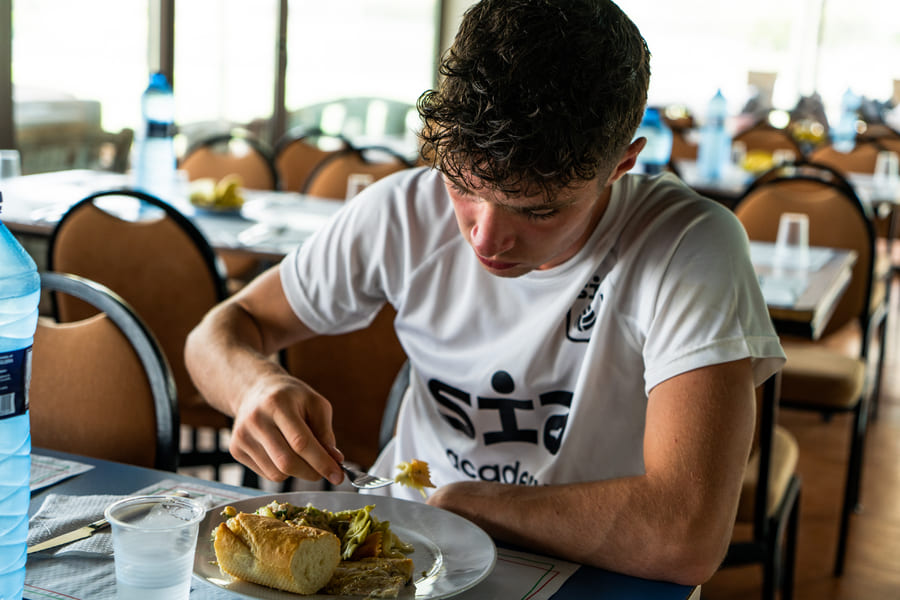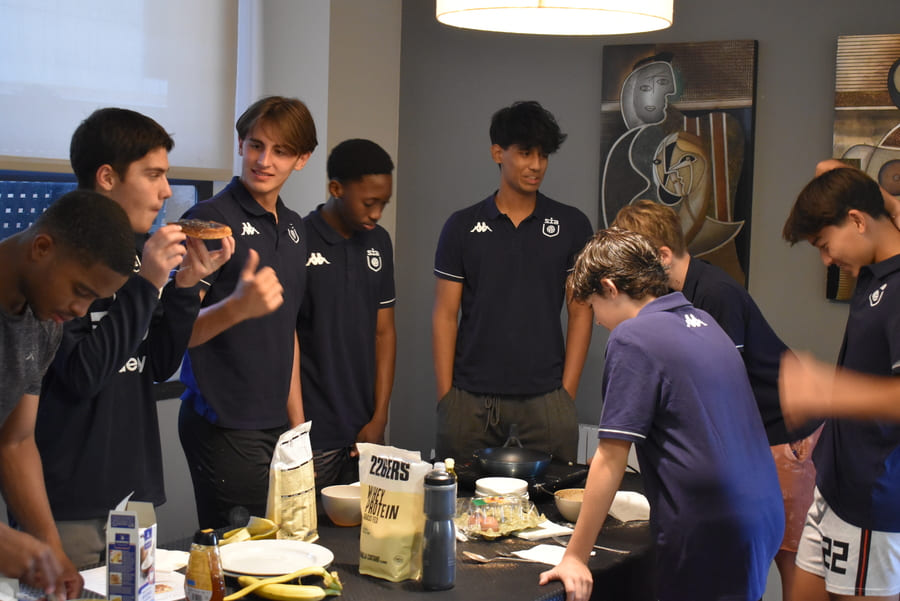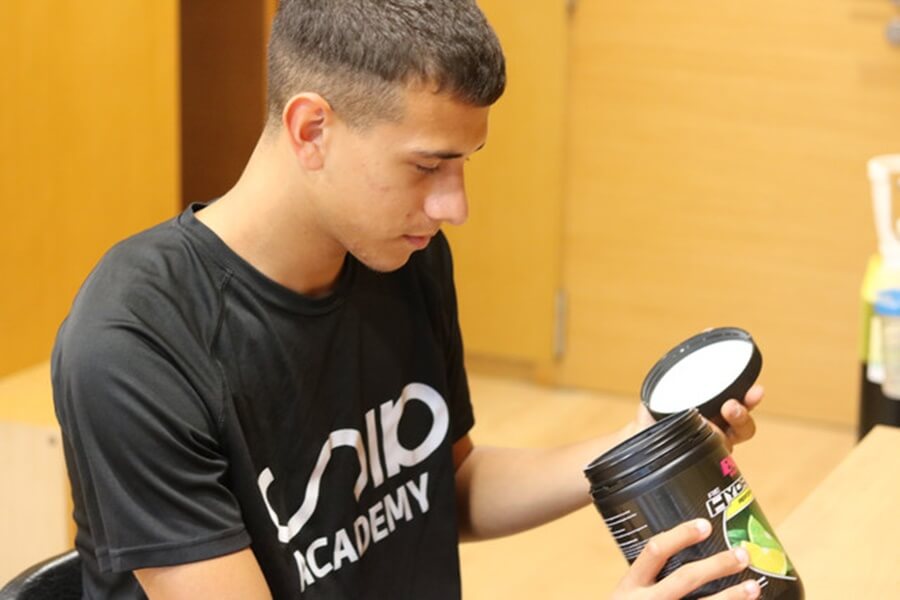Football is a highly demanding physical sport that requires comprehensive preparation to achieve maximum performance. One of the fundamental pillars in a footballer’s preparation is nutrition, as it directly influences their endurance, strength, speed, and recovery capacity. In this context, SIA Academy, one of the most prominent elite football academies, has integrated nutrition as a key element within its training program, ensuring that its players receive proper foods to optimize their performance.
Table of contents
Nutrition as the foundation of sports performance
A footballer’s body functions like a machine that needs the right fuel to perform at its best. A balanced and well-planned diet provides the essential nutrients to meet the energy demands of training and matches.
Among the main essential macronutrients for football players are:
- Carbohydrates: They are the primary source of energy. Storing an adequate amount of glycogen in the muscles is essential to maintain game intensity.
- Proteins: Essential for muscle recovery and tissue regeneration.
- Healthy fats: Provide long-lasting energy and help with vitamin absorption.
Additionally, micronutrients such as vitamins and minerals play a crucial role in injury prevention and maintaining muscle and bone function.

Hydration: a key factor
Hydration is another critical aspect for footballers. Dehydration can significantly reduce physical and cognitive performance, increasing the risk of cramps, fatigue, and injuries. Therefore, it is vital for players to consume enough water and electrolytes before, during, and after training sessions and matches.
Proper hydration strategies include:
- Drinking sufficient water throughout the day.
- Consuming sports drinks during prolonged or intense sessions.
- Monitoring urine color as an indicator of hydration levels.
- Replenishing lost fluids immediately after training or a match.
Nutrition in different stages of a footballer’s career
A footballer’s diet must be adapted to their specific needs depending on their stage of development and the demands of competition:
- Pre-training and pre-match: A meal rich in carbohydrates and easily digestible proteins is recommended to ensure the necessary energy.
- During the match or training: In prolonged sessions, consuming isotonic drinks or energy gels is useful to maintain glucose levels.
- Post-match and post-training: It is crucial to consume proteins and carbohydrates to promote muscle recovery and replenish glycogen stores.
These strategies help footballers sustain high performance, reduce fatigue, and recover faster, allowing them to train consistently and improve over time.
The role of SIA Academy in a footballer’s nutrition
SIA Academy has developed a comprehensive approach to training young talents, combining high-performance training with a personalized plan. Through its team of nutritionists and sports performance specialists, the academy implements science-based nutritional strategies to maximize each player’s potential.
Some key aspects of the nutritional program at SIA Academy include:
- Individual assessments: Each footballer receives a personalized analysis to determine their specific needs.
- Personalized meal plans: Diets are designed according to age, weight, activity level, and individual goals.
- Food education: Players are taught the importance of proper foods and how to apply it in their daily lives.
- Monitoring and adjustments: Each player’s diet is reviewed and adjusted according to progress and current needs.

SIA Academy’s nutritional approach has helped numerous players improve their performance and reduce injury risks. Many of its footballers have achieved significant improvements in endurance, strength, and recovery capacity thanks to proper nutrition.
Nutrition is a fundamental pillar in a footballer’s performance. Without proper nutrition, the body will not be able to withstand the demands of the sport, affecting endurance, recovery, and muscle development. SIA Academy has understood this importance and has integrated a high-level nutritional approach into its training program, ensuring that its players have the best tools to reach their full potential. Thanks to this approach, the academy continues to train elite footballers prepared to face the challenges of professional football.






